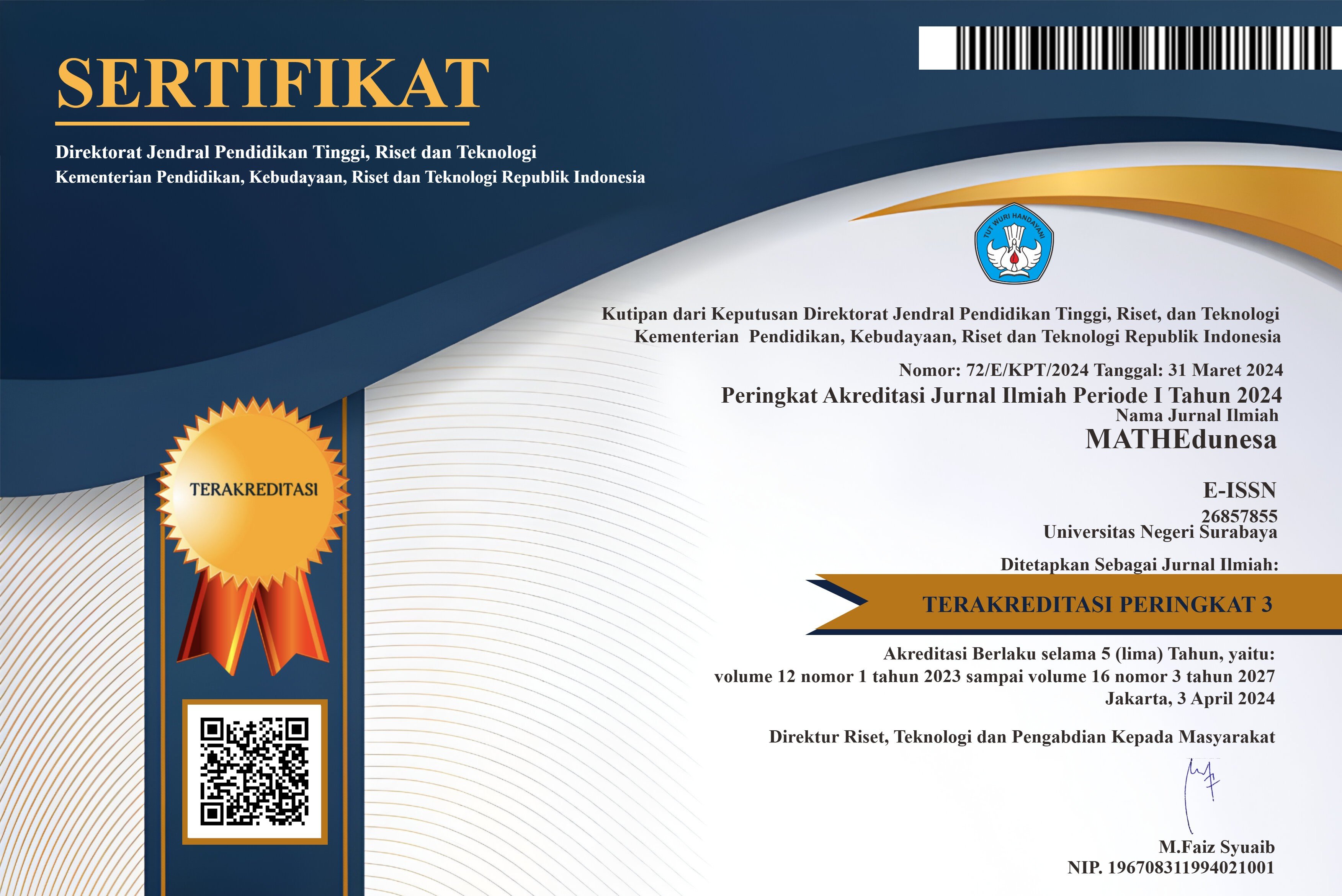Profile of Flexibility of High School Students in Mathematical Problem-Solving Based on Personality Type
DOI:
https://doi.org/10.26740/mathedunesa.v8n3.p531-535Abstract
e-mail: rinisetianingsih@unesa.ac.id
Abstract
Flexibility and problem-solving are two things that cannot be separated. One of the causes of differences in strategy in problem-solving is personality. This study is descriptive study using a qualitative approach. This study aims to describe the flexibility of high school students in mathematics problem-solving based on Keirsey personality types. The subjects in this study are four students with different types of personality. For data collection, this study used personality classification tests, mathematical ability tests, mathematical flexibility tests, and interview guidelines. The results show that the guardian student solves the problem using one strategy, namely the concept of addition and fraction multiplication and the answers obtained are incorrect. The artisan students solve the problem using two different strategies, namely drawing a picture and use a variable then the results of all answers are correct. Rational student solves the problem using two different strategies, namely use a variable and draw a picture, but cannot finish the second strategy. Idealist student solves the problem using two different strategies, namely use a variable and use direct reasoning then the answers are correct, but the second strategy is an advanced strategy.
Keywords: Problem-solving, flexibility, personality, Keirsey personality type.
Downloads
Downloads
Published
Issue
Section
 Abstract views: 145
,
Abstract views: 145
, PDF Downloads: 203
PDF Downloads: 203




